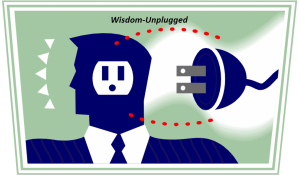
Wisdom-Trek / Creating a Legacy
Welcome to Day 1141 of our Wisdom-Trek, and thank you for joining me.
I am Guthrie Chamberlain, Your Guide to Wisdom
God Joined His Human Family – Worldview Wednesday

Wisdom – the final frontier to true knowledge. Welcome to Wisdom-Trek where our mission is to create a legacy of wisdom, to seek out discernment and insights, and to boldly grow where few have chosen to grow before.
Hello, my friend, I am Guthrie Chamberlain, your captain on our journey to increase wisdom and create a living legacy. Thank you for joining us today as we explore wisdom on our 2nd millennium of podcasts. This is Day 1141 of our trek, and it is Worldview Wednesday. Creating a Biblical worldview is important to have a proper perspective on today’s current events.
To establish a Biblical worldview, you must also have a proper understanding of God and His Word. On our Worldview Wednesday episodes we are in a series in which we are covering another detailed review of a book from one of today’s most prominent Hebrew scholars Dr. Micheal S. Heiser. We are taking a deep dive and will share Dr. Heiser’s insights into the question, which is also the title of his book “What Does God Want?”
God Joined His Human Family

Last week we explored how the nation of Israel, God’s chosen people, had continually turned from Him in a constant downward spiral. This concluded in their final betrayal when the nation was taken into exile. God still desired an intimate relationship with His human family, so there was only one choice left for Him…to become human and dwell as one of them.
Most Christians know all about the coming of Jesus. They know he was miraculously birthed by Mary, a young girl who was a virgin (Matthew [1:18]-25). The wider culture is familiar with the image of baby Jesus in the manger, especially in Christmas decorations. Several old, but still popular, Christmas songs celebrate how Jesus fulfilled Old Testament prophecies about a messiah.
· There’s More to Jesus Than The Cross
The entire focus is typically on Jesus being born into the world to eventually die on the cross. He would be the means of forgiveness for our sins, and thus, our entrance back into God’s family (John [3:16]). In other words, when most Christians think about Jesus, they have the cross in mind. That misses something.
The fact that God became a man in Jesus gets a little lost in focus on the cross. Most Christians don’t realize that it was necessary for God to become human for many reasons: to fulfill all the Old Testament covenants and to overturn the results of the supernatural rebellions we discussed in previous weeks.
The hope that human beings could still one day be with God forever was kept alive by God’s refusal to eliminate humanity or scrap the plan. He kept returning to humanity, offering them forgiveness and a relationship with him. God wanted them to believe and show they believed by living in harmony with him and each other. But God’s children rejected him at every turn. It’s as though every time God said, “You can still be with me— believe that and then show me where your heart’s at,” the problem got worse. The Bible uses the analogy of wandering sheep with no shepherd to describe this propensity (Isaiah 53:6; Matthew [9:36]). That’s pretty much on target.
As was noted last week, God’s children needed new hearts and God’s presence to help them believe. They needed a means to be saved from themselves and from a destiny that didn’t include everlasting life with the God who loved them. There had to be a way for God to honor his covenant promises, to reverse the curse of death, and to help his people continue in their faith.
God’s solution to these problems was radical. He had to become a man. He had to join the human race. This is where Jesus enters the story. Jesus was God become man (John 1:1, 14-15; Colossians [1:15]-20; 2:6-9). He was the solution to every one of these obstacles.
Only by dying on behalf of all humanity could the curse of death upon humanity be reversed. That meant such a death had to be followed by a resurrection, something only God could accomplish. Jesus was the solution for what happened in Eden.

Remember God’s covenant with Abraham? God had supernaturally intervened to enable Abraham and Sarah to have a son. That was the beginning of the nation of Israel. God told Abraham that one of his descendants would bless the nations God had forsaken at Babel. But how could a mere man do that?
Only God himself could be the loyal descendant of Abraham who would fulfill the promise of that covenant to bless the nations outside Israel. Jesus was that descendant of Abraham (Matthew 1:1; Luke [3:34]). He was the promised offspring who would release people in the divorced nations (“Gentiles”) from other gods so they could rejoin God’s family (Galatians [3:16]-18; 26-29). Jesus was the solution for fulfilling the covenant with Abraham.
Jesus was also a descendant of David, so he was the rightful king (Matthew 1:1; Luke 1:32; Romans 1:3). Jesus was the solution for fulfilling the covenant with David. He had the right ancestry and was perfectly loyal to God. He never disobeyed God. He never committed any sin (2 Corinthians 5:21; Hebrews 4:15; 1 Peter 2:22). The fact that he never sinned also meant he was the perfect example of the purpose of God’s law and the covenant made at Sinai. Jesus was the ultimate imager of God (2 Corinthians 4:4; Colossians 1:15). He is the illustration of how to image God; God wants us to conform to Jesus’s example (2 Corinthians 3:18; Colossians 3:10). As we’ll see later, that’s also what being a disciple means (1 Peter [2:21]).

God becoming a man is a difficult idea to grasp. God could become a man because he is more than one person. God is three persons who are completely the same in their nature. The Bible uses the terms “Father,” “Son,” and “Holy Spirit” to distinguish these three persons. Christians call the result of that labeling the Trinity. “God the Son” became a man as Jesus (John 1:1, 14-15). Theologians call that the incarnation, a term that means God coming “in the flesh.” Jesus would be the only human God the Father could rely on to fulfill the covenants.
You might recall that it was mentioned earlier that God knew “from before the foundation of the world” that he would send the Son, Jesus, to bring people back into his family (Ephesians 1:1-14; 1 Peter [1:20]). The amazing thing is that the Son was willing to become a man, be tortured, and die so that God could have a human family. Here’s how one section of the New Testament describes the conversation:
That is why, when Christ came into the world, he said to God,
“You did not want animal sacrifices or sin offerings.
But you have given me a body to offer.
You were not pleased with burnt offerings
or other offerings for sin.
Then I said, ‘Look, I have come to do your will, O God—
as is written about me in the Scriptures.’”
It’s a good thing that God the Son was willing to be born as Jesus. Not only were the covenants at risk, but overcoming all the misery caused by supernatural rebellions was at stake as well. We need to understand that those rebellions required God becoming a man—because God joining his human family set the stage for the coming of the Spirit.
That will conclude our lesson for this week from Dr. Heiser’s book “What Does God Want?” Next Worldview Wednesday, we will learn that because of God coming to earth, He was able to fix more than the fall of the humans, He also duped Satan and his minions into killing Him. I believe you will find each Worldview Wednesday an interesting topic to consider as we build our Biblical worldview.
Tomorrow we will continue with our 3-minute humor nugget that will provide you with a bit of cheer and help you to lighten up and live a rich and satisfying life. So encourage your friends and family to join us and then come along with us tomorrow for another day of our Wisdom-Trek, Creating a Legacy.

If you would like to listen to any of our past 1140 treks or read the Wisdom Journal, they are available at Wisdom-Trek.com. I encourage you to subscribe to Wisdom-Trek on your favorite podcast player so that each day’s trek will be downloaded automatically.
Thank you so much for allowing me to be your guide, mentor, and most of all, your friend as I serve you through the Wisdom-Trek podcast and journal.
As we take this trek together, let us always:
- Live Abundantly (Fully)
- Love Unconditionally
- Listen Intentionally
- Learn Continuously
- Lend to others Generously
- Lead with Integrity
- Leave a Living Legacy Each Day
I am Guthrie Chamberlain reminding you to Keep Moving Forward, Enjoy Your Journey, and Create a Great Day Everyday! See you tomorrow!













 To be truly wise, you must have an understanding heart as we are told in
To be truly wise, you must have an understanding heart as we are told in 



